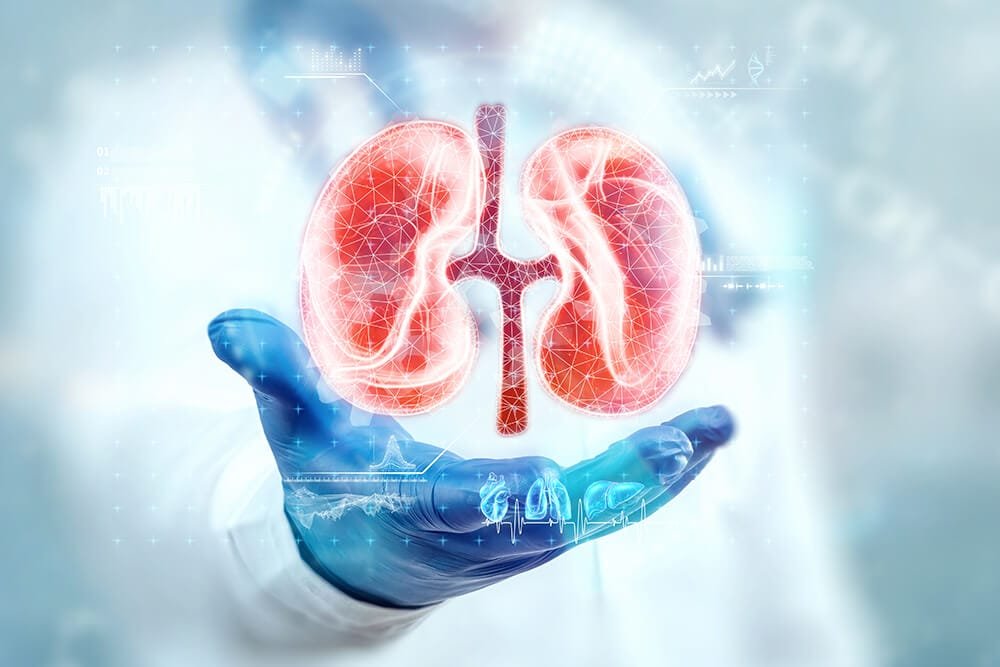Kidneys are often overshadowed by the heart and brain when discussing critical organs, but they play an indispensable role in maintaining our overall health. These bean-shaped powerhouses are responsible for a variety of essential functions that keep our bodies running smoothly. Understanding the importance of kidney health is crucial for ensuring long-term wellness and preventing a myriad of health issues.
1. Filtration and Detoxification
One of the primary roles of the kidneys is to filter waste products and excess substances from the blood. Every day, kidneys process about 200 quarts of blood to filter out approximately 2 quarts of waste and extra water. This waste, along with toxins from food, medication, and normal metabolic processes, is excreted as urine. Proper kidney function ensures that harmful substances do not accumulate in the body, which could otherwise lead to toxicity and systemic issues.
2. Regulation of Blood Pressure
Kidneys are instrumental in regulating blood pressure through the renin-angiotensin-aldosterone system. They adjust the amount of sodium and fluid in the body, which directly impacts blood volume and pressure. When kidneys function optimally, they help maintain stable blood pressure levels, reducing the risk of hypertension and related cardiovascular diseases.
3. Electrolyte Balance
Maintaining the right balance of electrolytes such as sodium, potassium, and calcium is vital for muscle function, nerve signaling, and acid-base balance. Kidneys manage these levels by filtering out excess electrolytes and reabsorbing the necessary amounts back into the bloodstream. Disruption in this balance can lead to serious conditions like hyperkalemia (excess potassium) or hypocalcemia (low calcium), affecting heart and muscle function.
4. Red Blood Cell Production
Kidneys produce and release erythropoietin, a hormone that stimulates the production of red blood cells in the bone marrow. Adequate red blood cell levels are essential for transporting oxygen throughout the body. Impaired kidney function can lead to anemia, causing fatigue, weakness, and diminished oxygen supply to tissues and organs.
5. Bone Health
Kidneys play a significant role in bone health by converting vitamin D into its active form, which is necessary for calcium absorption. Without this conversion, bones can become weak and brittle, increasing the risk of fractures and osteoporosis. Therefore, healthy kidneys are integral to maintaining strong bones.
6. Waste Excretion
Beyond the detoxification of blood, kidneys excrete metabolic waste products such as urea and creatinine. Accumulation of these substances can lead to uremia, a condition that can cause severe nausea, fatigue, and neurological issues. Efficient waste removal by healthy kidneys prevents these potentially dangerous outcomes.
7. Fluid Balance
Kidneys regulate the body’s fluid balance by adjusting urine concentration and volume based on the body’s hydration status. This balance is crucial for maintaining cell function and preventing conditions like edema (swelling due to excess fluid) and dehydration.
Preventing Kidney Disease
Given the kidneys’ multifaceted role in overall health, it’s vital to adopt lifestyle habits that support their function:
- Stay Hydrated: Drinking adequate water helps kidneys efficiently filter waste.
- Healthy Diet: Eating a balanced diet low in salt, sugar, and unhealthy fats reduces the risk of high blood pressure and diabetes, both of which can damage kidneys.
- Regular Exercise: Physical activity helps maintain healthy blood pressure and weight.
- Avoid Smoking and Excessive Alcohol: These habits can harm kidneys and impair their function.
- Monitor Blood Pressure and Blood Sugar Levels: Keeping these parameters in check helps prevent conditions that can lead to kidney damage.
Conclusion
Kidney health is indispensable for maintaining overall health and preventing a cascade of potential health issues. From filtering toxins to regulating blood pressure and producing vital hormones, the kidneys’ functions are integral to our body’s harmony. By understanding their importance and taking proactive measures to support kidney health, we can ensure our bodies function optimally and enjoy a better quality of life. Prioritizing kidney health is not just about preserving one organ; it’s about safeguarding our entire well-being.

